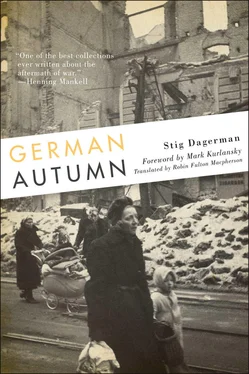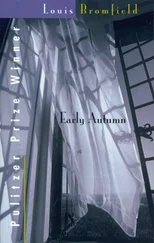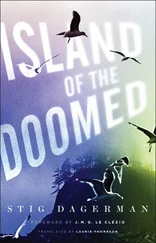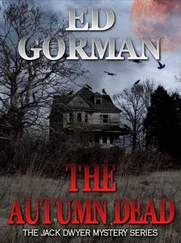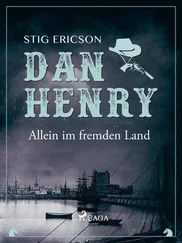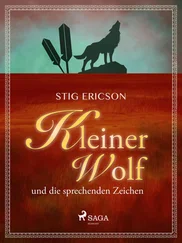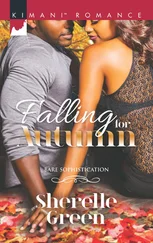‘America.’
‘Bitter ’
‘America!’
‘America?’
‘fawohl.’
There’s no doubting him. The boy wants to go to America and nothing can be done about it. Nothing but shake one’s head and stare helplessly up into the broken roof’s cloudy ironwork in the darkness high above us. But the boy who wants me to help him over to America quickly bows over my little American satchel and caresses it vexatiously.
‘You work for the Amis!’
‘No.’
‘Doch!’
There’s a hard wind blowing through this station in South Germany. The refugees from the east stamp their feet among their grey bundles. Tired POWs on their way home after years in France saunter to and fro in the cold darkness, woeful men in long French overcoats with a big PG (prisonnier de guerre) sewn on the back. On the pillars up and down the platform there are big red WANTED placards describing an escaped Polish murderer, once a guard in a concentration camp, of medium height and armed with a pistol. On the station walls there are other WANTED notices, neatly written ones stuck there by parents seeking children who have disappeared at the front. An astrologer outside Nuremberg promises to trace them in return for twenty marks sent by mail. On big posters a young woman, her skull showing faintly beneath the mask of her face, warns against venereal disease. One has to learn to see death in every woman one meets. A graph demonstrating the incidence of venereal diseases shows an ominous red curve rising at a dreadfully steep angle from July 1945, the month when the soldiers began to feel at home. On the platform opposite ours drunk American boy-soldiers are singing, each one his own hit-song. They fight one another playfully and the smacking sounds of their gloves are like drum-beats in the cold silence. One of them tumbles cursing over a trolley. A couple of staggering girls in their company giggle and cackle in German. Thanksgiving Day.
If I work for the Americans? I explain everything to the boy in the worn-out military coat and cap — a cap of defeat, bashed in and pulled right down over his forehead. He just becomes more eager and reckless and says that I must help him. He looks at the American satchel as if it were a revelation, a victory satchel with full paunch and shining buckles. He bends down over it and tells me about himself. He is sixteen and is called Gerhard. Last night he fled from the Russian zone. Managed to cross the border by train without being stopped. Fled not because the conditions back in Luther’s birthplace were particularly intolerable but because he is a mechanic and he did not want to be forced into making a voluntary journey to Russia. So, he has arrived here without money, without anyone he can contact, without even a roof over his head.
‘In Deutschland ist nix mehr los .’ One can’t stay in Germany any longer.
I lend him money for a ticket to Hamburg. At least he will get as far as Hamburg; he thinks that ships leave Hamburg for America, ships to hope for. He goes off to buy a ticket and if he wanted to he could easily slip away, refrain from changing the big note and vanish in the darkness outside the station. That would have been normal, more normal than anything else. But the boy who wants to go to America does come back, and when the train reverses in we fight side by side to get places on this cold, pitch-dark train, a typical German post-war train, though with unusually whole windows and with compartments with benches to sit on. Other German trains are dark in the daytime as well because wooden planks have been nailed over the empty window-frames. If you want light you can sit in a compartment without such planks, but it is cold there and the rain comes in.
We are pushed into this nocturnal compartment by busy invisible hands. In the darkness close combat develops, small-scale, quiet, wordless but bitter; trampled children shriek; countless feet kick aside the obstructive bundles of the refugees. The dark compartment is full but it can well be fuller. It is incredible how many people can find space in these miserable square metres. Not until the crush hurts is the door closed; along the train the doors bang shut and we hear the echoing of the despairing voices of those who came too late and now must wait another night among the ruins of this city instead of arriving at the ruins of another one.
We are standing in a compartment with places for eight people but there are twenty-five of us. Twenty-five in a compartment designed for eight — that means it makes no difference if the heat is shut off. Even before the train starts, sweat begins to run. There is no space for two feet, you have to stand on one foot but you do not fall, you hardly need even one foot for even with both feet off the floor you are held in a vice between other sweaty bodies. It is impossible to make one movement without causing someone pain. The lavatories are also full of people, but that matters little — reaching the lavatory is out of the question anyway.
At last the train moves off, the carriages jerk nervously and already the mere fact of finally getting under way brings a certain relief to back, arms and stomach, to everything caught in the vice. We slowly cross the bombed bridge which has very recently — after eighteen months of peace — been meagrely patched up. This is no propaganda bridge of the kind always being opened in German newsreels in the presence of a representative of the military government, a mayor and a pair of scissors that clips through a string and thus, as all the mayors say, helps to increase understanding between Germany and the Allies. Cynical people claim that it is always the same bridge and the same pair of scissors. But different mayors.
The last lights of the city shine in through the window and there in the passing gleam is Gerhard, who, more adept than I am at boarding German trains, has found a window seat. The gleam shows a whole row of tired grey faces: worn-out housewives on their way to the countryside to hunt for potatoes in the villages, prisoners in their greatcoats who have come from Lyons and who say, when the train crosses the bridge so slowly, that since they have waited five years to come home they can also wait through these few hours. Then there are plenty of people without recognized existences: black-marketeers and others who roam from city to city and only God knows what they live off.
We journey on in the thick darkness, sweaty, furious, still not sufficiently exhausted to have given up being irritated. But in this darkness something strange suddenly happens. In Germany there is a kind of emergency pocket-torch whose bottom you have to press repeatedly in order to produce light, a yellow intermittent gleam, and the torch buzzes like a bee while it reluctantly emits its light. Suddenly one of these torches starts buzzing in the darkness down by a bench, and all those whose position will allow them look in its direction and see that it is shining on the palm of a hand, a young woman’s hand, and in that hand there lies an apple. A large green juicy apple, one of Germany’s biggest. Total silence falls in the compartment, such is the effect of the apple, for apples are rare in Germany. And the apple is simply lying there on the girl’s palm, and then the torch goes out and in the breathless silence of the dark there is heard the terribly distinct sound of a bite: the young woman has taken a bite of her apple. The torch buzzes again and there is the apple as before, clearly illuminated on her palm. She directs the beam carefully at the bite, examines the bite; it is a remarkable bite, one that can make you hungry. And how terribly long does that big apple last, and that breathless silence? The young woman with her good teeth, which the whole compartment can feel, shines her torch on the apple each time she has taken a bite, perhaps to demonstrate how easily matter can be defeated.
Читать дальше
